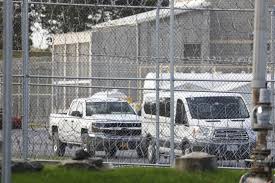 Earlier this summer, Alexandria Ocasio-Cortez achieved a stunning victory in New York’s 14th congressional district over Rep. Joe Crowley, one of the most influential Democratic leaders in Congress. Based on a grassroots-led campaign, her success attracted attention nationwide, as she soon began making appearances on cable news to answer hundreds of questions about her platform. While much of the discussion heading into the fall centers around her identity as a “democratic socialist,” let me take you back to the first couple of weeks following her ascendance to fame, where one of her other progressive ideas came under fire from Democrats and Republicans, even earning a tweet from President Trump.
Earlier this summer, Alexandria Ocasio-Cortez achieved a stunning victory in New York’s 14th congressional district over Rep. Joe Crowley, one of the most influential Democratic leaders in Congress. Based on a grassroots-led campaign, her success attracted attention nationwide, as she soon began making appearances on cable news to answer hundreds of questions about her platform. While much of the discussion heading into the fall centers around her identity as a “democratic socialist,” let me take you back to the first couple of weeks following her ascendance to fame, where one of her other progressive ideas came under fire from Democrats and Republicans, even earning a tweet from President Trump.
Throughout her campaign, Ocasio-Cortez focused on the partisan issue of immigration, one extremely pertinent to the election in the midst of the family separation crisis. During the final days before the primary, she traveled to Texas to visit and protest immigration detention centers near the border with Mexico to garner support based on her opposition to Trump’s “zero tolerance” policy and her belief that Immigration and Customs Enforcement, the government agency responsible for operating the detention centers, should be abolished.
However, her idea to abolish ICE was severely criticized by both sides, viewed as too radical by the right and too dangerous for the Democrats in the midterms by the left. Many Republicans thought that  getting rid of an entire branch of law enforcement would cause a major vulnerability in our national infrastructure. Many Republicans were able to use the “abolish ICE” slogan to attack Ocasio-Cortez and other Democrats running for office in November, such as Ayanna Pressley in Massachusetts and Kerri Evelyn Harris in Delaware. Trump tweeted, “the Democrats are making a strong push to abolish ICE, one of the smartest, toughest, and most spirited law enforcement groups of men and women that I have ever seen,” attempting to mobilize his conservative base around the idea of defending law enforcement and protecting national security.
getting rid of an entire branch of law enforcement would cause a major vulnerability in our national infrastructure. Many Republicans were able to use the “abolish ICE” slogan to attack Ocasio-Cortez and other Democrats running for office in November, such as Ayanna Pressley in Massachusetts and Kerri Evelyn Harris in Delaware. Trump tweeted, “the Democrats are making a strong push to abolish ICE, one of the smartest, toughest, and most spirited law enforcement groups of men and women that I have ever seen,” attempting to mobilize his conservative base around the idea of defending law enforcement and protecting national security.
On the other side of the Congressional races, many Democrats warn that a strong anti-immigration message could alienate moderate and more centrist voters. Because of the way that conservatives have framed the issue, it is becoming easier to visualize the calls to abolish ICE as a scary move to put the American people in harm’s way. Therefore, I think it is important to dissect the history and function of Immigration and Customs Enforcement. Here I make a case for its effective removal and replacement, in order to promote a well-informed dialogue about the immigration issue during the current election cycle.
What does ICE do?
ICE, or Immigration and Customs Enforcement, was created in 2002 through the passage of the Homeland Security Act. After the events of September 11, 2001, the Bush Administration deemed it appropriate to increase national security efforts, including the addition of greater immigration enforcement. This involved replacing Immigration and Naturalization Services as the primary agency facilitating immigration with three new branches of the Department of Homeland Security — ICE, Customs and Border Protection (CBP), and US Citizenship and Immigration Services (USCIS). CBP deals mainly with border security, while USCIS primarily deals with citizenship and immigrant integration. However, ICE’s function is to enforce immigration law by investigating crimes such as trafficking and fraud, and by tracking down undocumented immigrants and managing detention centers that hold people who violate immigration laws.
Why is ICE a problem?
ICE has been the subject of a large amount of criticism leveled at our immigration enforcement infrastructure. Despite the issues that other law enforcement poses such as Border Patrol’s unconstitutional searches or Attorney General Jeff Sessions’ policies that deny asylum seekers fleeing violence in foreign countries, I want to focus on ICE’s abuse of power and the harm they have caused to immigrants, public health, and our nation’s core values. I list six reasons for why ICE is extremely problematic:
First, ICE’s tactics and measures taken against immigrants is absolutely out of control. ICE “raids” often consist of officers waiting outside of schools, churches, and restaurants to catch undocumented immigrants, or even storming into workplaces or hospitals to detain up to hundreds of people at a time. During the Obama administration, ICE was encouraged to focus on investigating serious criminals who had violated immigration laws. However, Trump has urged the agency to crack down on all undocumented immigrants, whether they pose a serious threat to the country or not. As a result, ICE has treated children, working families, and the elderly trying to abide by the rules and make a living the same as violent criminals. In fact, focusing our resources on actual crime would more likely make our country safer than targeting every single person who crosses our border.

Second, ICE is responsible for running the detention centers that were a big feature in the news earlier in July, when it was made known that Trump was separating families and placing them in detention. Instead of simply sending people home or providing them with safe, humane conditions, immigration enforcement places immigrants into detention centers where they are treated as sub-human. These centers are hotbeds for discrimination and unjust treatment – multiple examples and accounts of people who were detained highlight how officers mocked or abused them based on race, religion, gender identity, disability, and sexual orientation. Additionally, ICE detention centers lack proper medical care, opening the door to inexperienced doctors making deadly mistakes as well as high suicide rates due to lack of mental health care and isolation as a tactic for people with disabilities.
Third, harsh immigration enforcement can have an effect on undocumented immigrants’ daily lives, whether they end up getting detained or not. News about the Trump administration ramping up its deportation efforts and family members and peers being taken away by ICE agents has a powerful chilling effect. Many people are afraid to leave their homes to meet their basic needs, such as shopping for food, or seeing a doctor when they need one. Not only does this subject people to premature death due to malnutrition and disease, but it’s pretty dangerous from a public health standpoint. People unable to receive treatment and preventative care are much more likely to spread a communicable disease, posing a risk to the community as a whole.
Fourth, studies show that the looming threat of deportation exerts overwhelming stress on children in particular. According to Rebekah Diamond, a resident physician in pediatrics citing numerous studies, “exposure to adverse childhood events greatly increases the risk for long-term physical, mental and behavioral issues.” No child should be subjected to unnecessary fears, especially when they present no danger or national security threat to the country.
Fifth, enforcement disproportionately affects certain groups based on race. Law enforcement targets predominantly-Latino communities and neighborhoods when conducting traffic stops and vehicle searches. Further evidenced by an American Sociological Association case study in Nashville’s police department, which partners with ICE through a program called 287(g) to arrest suspected undocumented immigrants and hand them over for detainment or deportation, police pull over people they suspected to be undocumented for traffic stops and conduct a search, arresting people without proof of immigration status or citizenship. While policies prevent officers from considering race, implicit biases play a huge role in how officers view Latinos, compared to whites, during a vehicle stop. Since it’s sometimes inevitable that they observe race-associated characteristics, it’s almost impossible for officers to be neutral in their decision-making. This indirect form of ICE enforcing immigration laws also affects Latino citizens, because of cases where they would be arrested in traffic stops if they forget to carry a proof of citizenship with them. It’s very difficult in a country where immigrants from Central and South America are portrayed as criminals to see beyond race and appearance when enforcing the law. While this issue isn’t unique to ICE and poses challenges for law enforcement across the board, attaching the consequence of horrible immigrant detention centers or using programs like 287(g) to cooperate with ICE on the local level and focus specifically on immigration enforcement are steps in the wrong direction and reasons why ICE should be shut down.
Sixth, ICE comes with a hefty price tag. $263 billion has been appropriated to immigration enforcement in the past decade– money that could have been spent in other places, such as education or health care, which have a better direct impact on American citizens. Given that ICE isn’t critical to our border enforcement and only has a negative impact on people, we shouldn’t be paying for something that hurts Americans. The FBI, CIA, DEA, local law enforcement, and Customs and Border Protection can all fill in to do the job of ICE without focusing on strict immigration enforcement that harms migrants and their families.
Here are some common arguments in defense of tough immigration enforcement and ICE:
Getting rid of ICE opens the borders, which is a disaster.
Well, whether or not we should open the borders is a completely separate debate, and that’s the point–removing ICE from our immigration enforcement is far from opening the borders. Abolishing ICE doesn’t even address the question of our other immigration laws, such as quotas by country limiting the amount of visas we can give, which delays the process for many people seeking a life in the United States, or restrictions in the Immigration and Nationality Act (INA) that prohibit terrorists or people who are considered a threat to public health. Furthermore, we would still have an unnecessarily large and effective border security and immigration enforcement regime. Customs and Border Protection is actually the agency that is supposed to protect the border and 99 miles within the border, not ICE, meaning that in a post-ICE America we would still have a border patrol that enforces our immigration laws at the sites where people enter the United States. Even deeper into the United States where ICE currently has jurisdiction, other federal agencies, like the FBI, as well as local law enforcement would be able to investigate crimes and threats to national security.
People who commit low-level crimes and don’t bother other people in the United States shouldn’t be thrown into harsh immigration detention centers or deported where people who come to the US particularly to seek asylum face deadly threats in their home countries. Crime doesn’t have to be tied to immigration status, and it’s not a drain on our law enforcement to treat immigrants the same as US citizens, especially when immigrants are less likely to commit crimes in the first place.
Immigrants shouldn’t be allowed into the United States at all – they bring in more crime.

Time and time again, evidence will tell us that the crime argument is just false. As the number of undocumented immigrants grew from 3.5 million to 11.2 million between 1990 and 2013, violent crime decreased by a factor of 48% (the study I cited indicates that decrease in crime is related to lower predisposition for immigrants to commit crimes, rather than a result of effective border policies). That means that letting more people into the country, whether they come here through our legal system or not, decreases crime over time because a larger share of our population would have lower criminal propensities.
However, while it’s helpful to understand that immigrants are not the stereotypical “criminals” that many politicians make them out to be, the question that’s more important to discuss here is not whether more immigrants should be allowed into the country but how we treat immigrants that are currently coming to the country. When we are only learning about examples of undocumented immigrants committing violent crimes and how it affects American citizens, we are neglecting the very real violence that ICE agents inflict on immigrants and immigrant families, from running detention centers to sending people to dangerous home countries.
Obama was responsible for aggressive immigration enforcement too, right?
Absolutely. Obama was given the nickname “deporter-in-chief” and did in fact facilitate vast detention and deportation of undocumented immigrants. However, it’s extremely important to point out the context in which this argument is used, which is purely a political attack on the Democrat’s record of immigration. My argument is that ICE should not be used at all to enforce immigration laws, regardless of whether the Democrats are in favor of replacing ICE, so it doesn’t counteract the reasons why ICE is problematic. It also tries to take the blame away from President Trump, who is in the large part responsible for detention and deportation, especially after his calls for a “zero-tolerance policy” for migrants without documentation at the border.
However, I chose to respond to this argument because addressing how immigration is politicized is an important thing to consider during an election cycle. While many people on both sides are in favor of maintaining ICE, there is a growing number of Democratic candidates running this fall that are in favor of abolishing it. Above, I discussed how Alexandria Ocasio-Cortez and Kerri Evelyn Harris are against ICE. Here in Texas, Democratic candidate Beto O’Rourke running for Senate against Ted Cruz is calling for immigration laws that treat immigrants as humans and protect families at the border from unjust actions by border patrol, while not necessarily calling for abolishing ICE.
I encourage all Americans to read more about the ways in which our immigration system is stacked against immigrants of every status, immigrants’ positive contributions to our society, and the policies that people running for Congress are endorsing to solve immigration issues. It is important and productive to make an informed decision about how we should treat people coming to the United States, rather than simply reading headlines about Trump’s aggressive policies or sensationalized examples of undocumented immigrants committing crimes to reinforce our viewpoints.






